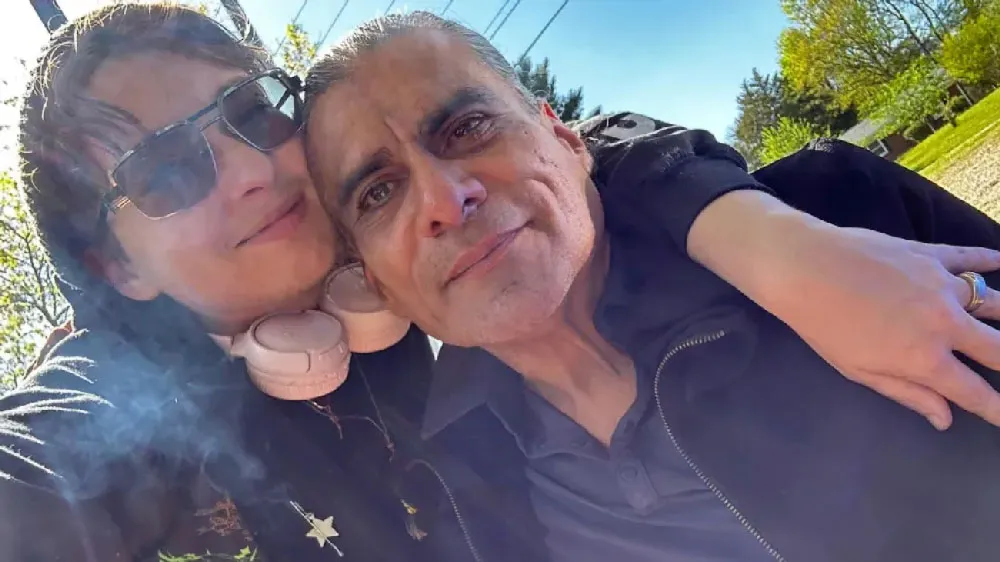February 6, 2014
How Russia Enforces Its Ban on Gay 'Propaganda'
Bobby McGuire READ TIME: 4 MIN.
MOSCOW -- When the Sochi Winter Olympics begin Friday, many will be watching to see whether Russia will enforce its law banning gay "propaganda" to minors if athletes, fans or activists wave rainbow flags or speak out in protest.
The message so far has been confusing.
The International Olympics Committee has reminded athletes that "no kind of demonstration or political, religious or racial propaganda is permitted in any Olympic sites." Athletes will be free to express their opinions at news conferences, however, according to IOC President Thomas Bach.
Sochi organizers initially took issue with Bach, but then backed off.
President Vladimir Putin has assured gays that they will be welcome in Sochi but only if they "leave the kids alone." Dmitry Kozak, the deputy prime minister overseeing the games, repeated that message Thursday.
The Russian government initially banned all protests during the games. Following an international outcry, it set up a designated protest zone far from any of the Olympic venues.
Across the rest of the country, however, Russian judges have been implementing the law and handing out fines. Here's a look at who has been targeted since the law took effect in July:
ACTIVISTS
In December, Nikolai Alexeyev, Russia's leading gay activist, and Yaroslav Yevtushenko traveled to the far northwestern city of Arkhangelsk, where they picketed outside a children's library bearing banners that read, "Gays aren't made, they're born!" The two were fined 4,000 rubles ($115) and their appeal denied.
Activist Dmitry Isakov protested the law in his hometown of Kazan, 720 kilometers (450 miles) east of Moscow. Months later, he was called to court after a teenager in Arkhangelsk had seen photos of his protest online and filed a complaint. Isakov was fined 4,000 rubles in January and his appeal is still pending.
A JOURNALIST AND A TEACHER
Newspaper editor Alexander Suturin was summoned to court after he published an interview with an openly gay schoolteacher in his weekly paper in Khabarovsk, a city on the Amur River that borders China. Fines are much higher for those accused of spreading propaganda with the help of media or the Internet, so Suturin was fined 50,000 rubles ($1,400) by a Khabarovsk court last week. In the interview, the teacher - who was told his school contract would not be renewed after he came out publicly as gay - defended LGBT rights.
SOCIAL NETWORKING
When journalist Yelena Klimova posted an enraged column about the propaganda law to a news website, she got a reaction she didn't expect: An underage lesbian from provincial Russia reached out to thank her for the column, saying it had helped keep her from committing suicide. Klimova kept up the correspondence with the girl and set up Children-404, an online group hosted by Russia's top social networking website, which allows gay and lesbian teens to post supportive letters to each other.
Now Klimova is facing trial this month in her Urals hometown of Nizhny Tagil, after several complaints were filed by a Russian lawmaker famous for championing anti-gay legislation.
"I didn't expect that it would come into anyone's head to label letters sent from minors as propaganda among minors - it's absurd!" she wrote to The Associated Press.
A SCHOOLGIRL
Shortly after a 14-year-old girl in the small town of Dyatkova, 300 kilometers (200 miles) from Moscow, held a one-person picket to protest the gay propaganda law, the phones at her home and school started ringing. An anti-gay activist from St. Petersburg, Timur Isayev, called the girl's principal and later her mother, demanding that she be homeschooled so she could not spread her ideas to other children.
Maria, who asked that her last name not be used in this article, was disciplined by a government-run commission for the protection of children's rights, which ordered her to make weekly visits and encouraged her to see a psychiatrist.
While under normal circumstances she can't be held legally responsible until age 16, she says the commission threatened to take her to court under the propaganda law if she continued to express her views in public. This week, after her case became a national media sensation, Maria said the commission director quietly promised her that the complaint against her would be dropped.
"But I'm afraid that suddenly I'll get a call and they'll say it was a mistake," she told the AP by phone. "And then everything will start all over again."
STREET PROTESTS
Gay pride parades have been de facto banned for many years in Russia, but since last year city authorities often cite the propaganda law as a reason to forbid any demonstrations. When small groups of demonstrators try to defy the bans, police usually detain them immediately but rarely hold them for long or press charges.
VIGILANTE ACTIVISM
The cases that end up in court are often the result of complaints from anti-gay activists who lobby for the propaganda ban to be more rigorously enforced.
Isakov, the gay activist from Kazan, was fined after Arkhangelsk teenager Erik Fedoseyev wrote to Kazan authorities. According to Isakov, Fedoseyev's complaint said he had been encouraged to act by his father, whose wife had left him for another woman.
The activist who complained about Maria told the AP that he didn't regret intervening in the life of a 14-year-old girl he had never met.
"The girl is sick and she needs to be suspended from school," Isayev said by phone.
Isayev said he's contacted the relatives and school principals of more than a dozen openly gay teens like Maria, but that hers was the only case that went public.
"If we don't do it (enforce the law), things will be bad for this country," he said.


